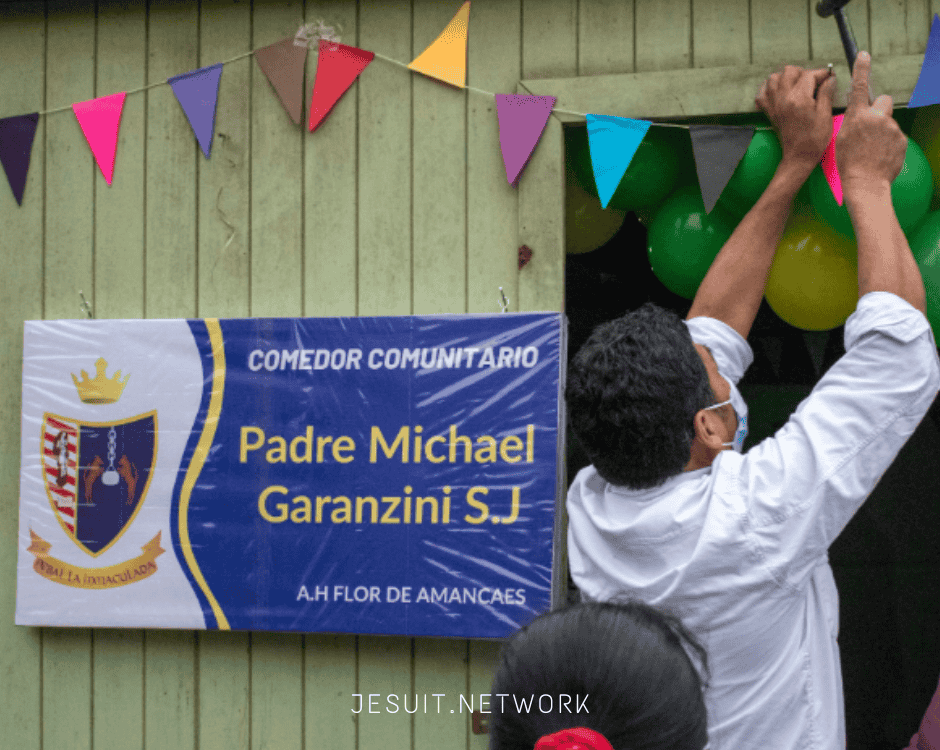Este sitio web utiliza cookies para que podamos ofrecerle la mejor experiencia de usuario posible. La información sobre cookies se almacena en su navegador y realiza funciones como reconocerle cuando vuelve a nuestro sitio web y ayudar a nuestro equipo a comprender qué secciones del sitio web le resultan más interesantes y útiles.
REPAM: Pan Amazonian Network advocates for the rights of indigenous people at theUnited Nations
The Panamazonian Network (REPAM), was created in 2014 as a response to the urgent need to take care of the harmonic life with nature and to raise awareness about the importance of the Amazon to humanity. The Network shares specialists, resources and information from an interdisciplinary perspective. Since the 90s, the Travelling Team has visited and established relations with indigenous communities and missionary teams all around the Amazon.
Today, REPAM faces the following challenges:
- The intensification of the resource extraction projects in the region (oil, minerals, natural gas, water, wood…) by big enterprises, which have a huge impact in the area. This context, based on the overexploitation of natural resources, is a reflection of the economic model that the Laudato Si encyclical denounces.
- The defense of human rights, particularly the territorial right recognised to indigenous communities and people.
- The need to promote alternatives to development, highlighting the contribution of indigenous people and traditional communities in the Amazon.
Following these lines of action, the REPAM team is implementing multilevel strategies, as they include discernment and meetings with policy makers, as well as a pedagogical approach.
On the one hand, a methodological guide and a podcast radial series to work on the Laudato Si encyclical can be found on the Network’s webpage in three languages (Spanish, English and Portuguese).
 Beyond this proposal, this past May 1st, Latin American Jesuit institutions took part in the VIII Panamazonian Social Forum in Tarapoto, Peru, where participants wrote a final letter about the situation that the Amazon is facing at this time. The letter highlights the violation of the rights of the Amazonian indigenous communities due to the productive and extractive industries that are developing in the area:
Beyond this proposal, this past May 1st, Latin American Jesuit institutions took part in the VIII Panamazonian Social Forum in Tarapoto, Peru, where participants wrote a final letter about the situation that the Amazon is facing at this time. The letter highlights the violation of the rights of the Amazonian indigenous communities due to the productive and extractive industries that are developing in the area:
“We, as REPAM, realize the serious impact that extractivism and other legal and illegal activities have on the Amazon Region, which affect not only the environment and natural resources, but also the human rights of the local population, both indigenous and nonindigenous, especially their right to territorial property. These detrimental effects should act as a call to reflection for our governmental leaders regarding the need to look for and find new alternatives that seek to harmonize respect for human rights and the environment on the one hand with economic progress and development on the other.
The right to territorial property is not limited to issues of land ownership. This right is based on the culture that a people or community identify with within the specific space in which they carry out their daily activities. The concept of territory is related to the idea of habitat and extends to specific interpretations of human production habits, whether they be directed towards obtaining natural resources or creating new forms of production.”
To that end, and in line with their political strategy, 18 REPAM members travelled from the Amazon region to Washington D.C. to defend the rights to the Earth and clean water.
The Jesuit Conference of Canada and the United States was part of a host committee of Catholic organizations that sponsored the REPAM delegation’s visit. Cecilia Calvo, senior advisor on environmental justice for the Jesuit Conference, helped identify spaces for the REPAM delegation to share their voices and concerns about the human rights impacts of extractive industries.
The REPAM delegation had the opportunity to testify at the Inter-American Commission on Human Rights at the Organization of American States in Washington, D.C. The delegation consisted of indigenous and pastoral leaders including Brazilian Cardinal Cláudio Hummes, president of REPAM and former archbishop of Sao Paulo; Archbishop Pedro Ricardo Barreto Jimeno, SJ, of Huancayo, Peru, and vice president of REPAM; and leaders from four countries of the Amazon (Brazil, Colombia, Ecuador and Peru).
They hoped to share the human rights issues facing indigenous peoples in the Amazon and the role of accompaniment played by the Catholic Church, answering the call put forth by Pope Francis in his encyclical Laudato Si’ to care for creation and the most vulnerable communities. The Jesuits’ support of REPAM advances a priority of the global Society expressed at the 36th General Congregation “Jesuit commitment in regions like the Amazon and the Congo Basin” and a priority of the Conference of Latin American Provincials (CPAL).
“Through this public hearing, we hope to define the position of the Pan-Amazon Ecclesial Network – REPAM – of the Catholic Church regarding the infringement on the land rights of the indigenous people and Amazonian communities in South America,” said Archbishop Barreto.





